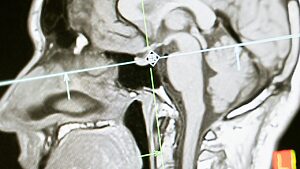When individuals seeking addiction treatment research their options, they often encounter familiar terms like “residential treatment” and “outpatient care.” However, between these well-known levels of care exists an important but often less understood option: the Partial Hospitalization Program (PHP). This level of care serves as a crucial bridge in the treatment continuum, providing intensive therapeutic support while allowing for greater independence than residential treatment. This article explores what PHPs are, who they benefit, and how Texas Recovery Centers implements this vital level of care.
What is a Partial Hospitalization Program?
A Partial Hospitalization Program represents a structured, intensive level of care that falls between residential treatment and standard outpatient services. While definitions can vary slightly between providers, PHPs typically share these key characteristics:
Time Commitment and Structure
- Participation for approximately 6-8 hours per day
- Programming 5-7 days per week, depending on individual needs
- Structured daily schedule including multiple therapeutic components
- Total duration typically ranging from 2-4 weeks, based on progress and needs
Living Arrangements
- Clients return home or to a supportive living environment in the evenings
- No overnight stays at the treatment facility
- Often utilized in conjunction with recovery residences for those without stable housing
Clinical Intensity
- Similar therapeutic intensity to residential treatment
- Multiple therapeutic groups each day
- Regular individual counseling sessions
- Medical and psychiatric services as needed
- Comprehensive case management
The PHP’s Position in the Continuum of Care
Understanding where PHPs fit within the broader treatment continuum helps clarify their purpose and value. The typical progression of addiction treatment levels includes:
- Medical Detoxification: 24/7 medical supervision for safe withdrawal management
- Residential/Inpatient Treatment: 24/7 structured therapeutic environment with on-site living
- Partial Hospitalization Program: Intensive daily treatment while living off-site
- Intensive Outpatient Program (IOP): Treatment several days per week for a few hours each day
- Standard Outpatient Treatment: Weekly or biweekly individual or group sessions
- Continuing Care/Aftercare: Ongoing support following formal treatment completion
PHPs serve two essential functions within this continuum:
- As a step-down from residential treatment, allowing clients to begin applying recovery skills in real-world settings while maintaining substantial clinical support
- As a step-up from outpatient services when greater structure and therapeutic intensity are needed but 24/7 supervision isn’t necessary
This flexible positioning makes PHPs versatile treatment options that can be tailored to individual recovery pathways.

A Typical Day in a PHP
Understanding the daily structure of a PHP helps clarify what participants can expect. While schedules vary between programs, a typical day at Texas Recovery Centers’ PHP might include:
Morning Components
- Check-in group to set daily intentions and address immediate concerns
- Psychoeducational group focusing on addiction concepts and recovery skills
- Process group for exploring emotions and experiences with peer support
- Individual counseling session (scheduled regularly, not necessarily daily)
Afternoon Components
- Skills development group focusing on practical recovery tools
- Specialty groups addressing specific needs (trauma, co-occurring disorders, etc.)
- Experiential therapy such as art therapy or recreational activities
- Medication management when applicable
- Discharge planning and community resource connection
This structured schedule provides the therapeutic intensity needed for meaningful progress while still allowing evenings for practicing recovery skills in home environments.
Therapeutic Components of Quality PHP Programs
Effective Partial Hospitalization Programs include multiple evidence-based therapeutic components addressing various aspects of recovery:
Core Clinical Services
- Individual therapy with master’s or doctoral-level clinicians
- Group therapy focusing on both education and emotional processing
- Family therapy and education when appropriate
- Psychiatric services for medication evaluation and management
- Medical monitoring for those with health concerns
- Case management for coordinating care and resources
Evidence-Based Approaches
- Cognitive-Behavioral Therapy (CBT) for addressing unhealthy thought patterns
- Dialectical Behavior Therapy (DBT) skills for emotional regulation
- Motivational Enhancement techniques for strengthening recovery commitment
- Trauma-informed care addressing underlying traumatic experiences
- Relapse prevention planning and skill development
Holistic and Complementary Services
- Mindfulness and stress management practices
- Nutritional guidance and wellness education
- Recreational activities promoting healthy leisure skills
- Expressive therapies such as art and music
- Life skills development for practical daily functioning
This comprehensive approach addresses the complex nature of addiction, providing tools for both immediate sobriety maintenance and long-term recovery.
Who Benefits Most from PHP Treatment
While each individual’s needs are unique, certain situations and characteristics indicate that a PHP might be the most appropriate level of care:
Transitioning from Higher Levels of Care
PHPs benefit individuals who:
- Have completed residential treatment but need continued intensive support
- Have successfully detoxified but require structured therapy to maintain sobriety
- Are ready for more independence but not yet ready for the limited structure of outpatient care
Stepping Up from Lower Levels of Care
PHPs serve individuals who:
- Have attempted outpatient treatment but need more structure and support
- Are experiencing increased symptoms or early warning signs of relapse
- Require more intensive treatment following a brief lapse or relapse
Initial Treatment for Specific Situations
PHPs may be appropriate initial treatment for individuals who:
- Have stable housing and strong support systems
- Don’t require 24/7 monitoring but need intensive therapeutic support
- Have work or family responsibilities that prevent residential treatment
- Have co-occurring disorders requiring intensive focus but not hospitalization
Clinical Considerations
Clinical factors suggesting PHP appropriateness include:
- Substance use disorder severe enough to warrant intensive intervention
- Sufficient medical stability to not require 24-hour nursing care
- Motivation and capability to maintain sobriety outside treatment hours
- Absence of acute suicidality or other conditions requiring 24/7 monitoring
- Cognitive functioning adequate for participating in group interventions
Benefits of the PHP Model
The Partial Hospitalization model offers several distinct advantages that make it valuable within the treatment continuum:
Real-World Recovery Application
- Opportunity to practice recovery skills in actual living environments
- Daily return to potential triggers with immediate clinical support to process experiences
- Gradual building of confidence in managing recovery outside clinical settings
- Development of routines that can continue after treatment completion
Maintenance of Community Connections
- Ability to maintain family relationships and participate in family life
- Opportunity to continue certain work or educational responsibilities
- Connection with local recovery communities that will provide ongoing support
- Integration of recovery into actual living situation rather than an isolated treatment environment
Clinical and Financial Efficiency
- Intensive clinical services without the cost of 24/7 staffing and housing
- Often better insurance coverage than extended residential stays
- Appropriate utilization of resources based on actual level of need
- Sustainable treatment duration allowing sufficient time for change
Insurance and Financial Considerations
Understanding the financial aspects of PHP treatment helps individuals and families make informed decisions:
Insurance Coverage
- Most commercial insurance plans cover PHP treatment when medically necessary
- Coverage typically requires documentation of appropriate level of care need
- Prior authorization is often required before beginning treatment
- Coverage duration varies by insurance plan and demonstration of continued need
Determining Costs
Factors affecting out-of-pocket expenses include:
- Insurance deductibles and co-insurance requirements
- In-network versus out-of-network status of the treatment provider
- Length of treatment and specific services provided
- Additional services beyond the standard PHP components
Financial Options
For those with limited insurance coverage, many programs offer:
- Sliding scale fee arrangements based on financial ability
- Payment plans to distribute costs over time
- Scholarship programs or hardship allowances
- Assistance with accessing public funding when available
Working with the admissions and financial team at a treatment center helps clarify these considerations before beginning treatment.
Texas Recovery Centers’ Approach to PHP
At Texas Recovery Centers in Scurry, our Partial Hospitalization Program represents a thoughtful integration of evidence-based clinical care with holistic approaches designed to address the full spectrum of recovery needs.
Our PHP Model
Our program includes:
- Comprehensive assessment to ensure appropriate level of care placement
- Individualized treatment planning addressing specific needs and goals
- Integration of multiple therapeutic modalities for comprehensive healing
- Emphasis on developing practical recovery skills for real-world application
- Strong focus on aftercare planning and community resource connection
Unique Aspects of Our Approach
What distinguishes our PHP includes:
- Ranch setting providing tranquility and connection with nature
- Seamless coordination with our other levels of care for smooth transitions
- Family involvement throughout the treatment process
- Specialized programming for specific populations (veterans, professionals, etc.)
- Strong emphasis on building community support for sustained recovery
Transition Support
We prioritize successful transitions through:
- Graduated reduction in program hours as discharge approaches
- Specific preparation for the next level of care
- Connections with community resources before discharge
- Clear communication with outpatient providers
- Ongoing alumni support options
This comprehensive approach to PHP care creates a supportive bridge between more and less intensive treatment phases, maximizing the chance for sustainable recovery.
Making the Decision: Is PHP Right for You?
Determining whether a Partial Hospitalization Program is the most appropriate option involves several considerations:
Questions to Discuss with Treatment Professionals
- What level of structure and support do I need to maintain sobriety?
- Do I have a safe, supportive living environment to return to each evening?
- What does my insurance cover, and what are the financial implications?
- How will my work, education, or family responsibilities be affected?
- What are my previous treatment experiences, and what level of care worked or didn’t work?
The Assessment Process
A thorough professional assessment typically includes:
- Evaluation of substance use history and patterns
- Assessment of withdrawal risk and medical stability
- Screening for co-occurring mental health conditions
- Evaluation of living situation and support systems
- Consideration of previous treatment experiences and outcomes
This assessment helps determine whether PHP is the right starting point or if another level of care would be more appropriate initially.
Conclusion: Taking the Next Step
Partial Hospitalization Programs offer a vital middle ground in addiction treatment—providing intensive therapeutic support while allowing for real-world recovery application. For many individuals, this level of care represents either the perfect transition from residential treatment or an appropriately intensive alternative when 24/7 care isn’t necessary.
At Texas Recovery Centers, our PHP is designed to provide comprehensive care tailored to individual needs, helping clients build the skills, insights, and connections necessary for lasting recovery. Our tranquil Scurry location offers the ideal setting for healing while maintaining accessibility to the Dallas-Fort Worth metropolitan area.
If you’re considering treatment options for yourself or a loved one, we invite you to learn more about whether our Partial Hospitalization Program might be right for you. Our admissions team is available to answer questions, arrange assessments, and verify insurance coverage. Begin the conversation today by calling 888-354-2194 for a confidential consultation.













